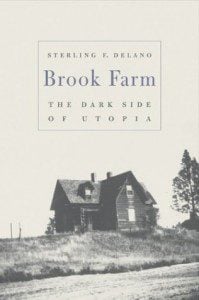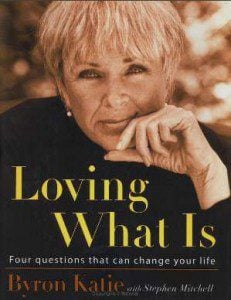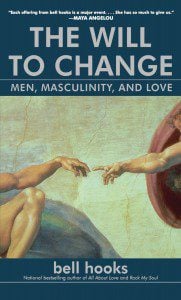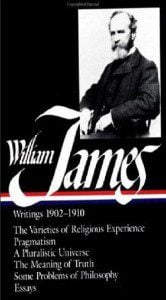Lodro Rinzler is twenty-nine years old. He is also a longtime Buddhist practitioner. As a Westerner who was 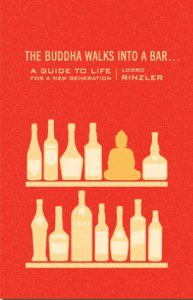 drawn to Buddhism as a child, he spent his teens and twenties experimenting with meditation and Buddhist precepts. He also spent his teens and twenties experimenting with sex, drugs, and rock ‘n’ roll. The fruit of this tension can be found in his new book The Buddha Walks into a Bar: A Guide to Life for a New Generation and in his ongoing advice column “What Would Sid Do?” (Sid, of course, is short for Siddhartha Gautama, the name of the historical Buddha.)
drawn to Buddhism as a child, he spent his teens and twenties experimenting with meditation and Buddhist precepts. He also spent his teens and twenties experimenting with sex, drugs, and rock ‘n’ roll. The fruit of this tension can be found in his new book The Buddha Walks into a Bar: A Guide to Life for a New Generation and in his ongoing advice column “What Would Sid Do?” (Sid, of course, is short for Siddhartha Gautama, the name of the historical Buddha.)
Some recent topics include: “The Four Gates of Speech: Is It Really a Good Idea to Call the Ex?”; “Better Homes and Gardens: Buddhist Edition”; and “Buddhism and Activism: How Would Sid Produce Social Change?” Rinzler’s work may be worth exploring further in the future, but for now I would like to focus on his most recent column titled, “A Buddhist Practice for Your New Year’s Resolution.”
Rinzler writes, “If you want to create a change in your life, you can begin by clarifying your intention for doing so.” He continues to describe a meditation practices for clarifying your intention that would take at least 15-20 minutes, but for now I would like to invite you to experience at least apart of Rinzler’s New Year’s meditation. In our busy lives, finding two minutes to read about a meditation practice can be difficult in itself. Finding twenty minutes to do the practice can be even more difficult. But transformative change is much more likely to come from the doing a practice as opposed to merely reading about it.
So if you are comfortable doing so, I invite you to sit up straight with your feet flat on the floor. Relax your shoulders. And take a deep breath: in…and out. If you are comfortable doing so, I invite you to close your eyes. As we begin, “check in with your body. Notice where you are tense and allow those muscles to relax.”
“Once you are settled, turn your mind to the physical sensation of your breathing.” For the next few moments, “Tune into the natural flow of both your in-breath and your out-breath.” If your attention wanders, gently return your focus to your breath. In…and out.
From this more centered place, I invite you to gently ask yourself in regard to this new year, “What is my motivation for change?” “When you notice yourself becoming distracted from this basic question, gently return your attention to the phrase…. just as you came back to the breath during the previous part of this meditative exercise….”
Rinzler suggests that, “Looking at your motivation will provide fuel to keep the fire of intentional change burning all year long.” Perhaps a “role model” came to mind, or a certain “quality,” or an “embodiment of ideals.” The hope is that you are left with a “curiosity as to what it would be like to live my life with [motivations for change] at the core of who I am.”
~ ~ ~
A few years ago, when I regularly spent time each summer as a youth camp counselor, one of the campers’ favorite activities was when we invited them on the last day of camp to write a letter to themselves about what they had learned at camp that week and what they wanted to remind themselves about six months after camp had ended. As with the coming of a new calendar year, summer camp (or any retreat or vacation setting) can be a liminal time and space when change and transformation can seem more possible than at other times.
The camp director would take these sealed, self-addressed envelopes and mail them exactly six months after camp had ended and six months before the next camp session would begin. Receiving these letters was always a surprise, because you had forgotten about them after so many months had passed. And it was always fascinating on the flip side to be reminded about the questions that, six month in the past, were equal-parts urgent and impossible to answer until time has passed.
To look back six months before today, on June 30, 2012, I was still almost a month away from preaching my first sermon at the Unitarian Universalist Congregation of Frederick. And although Magin and I were eagerly anticipating our move to Frederick, there were still many unknowns: how would we fit in, what would our daily lives be like here? I had found a job I thought I would love; but would Magin also be able to find a job nearby where she could thrive? As I look forward six months, there are questions I can’t yet know the answer to. Magin and I joined a gym a few weeks ago: six months from now will we have gone to the gym as many times as we plan and expect to? Regarding me coming into fellowship with the Unitarian Universalist Association, the process has gone smoothly so far. But there remain hoops to jump through and committees to stand before, and I cannot completely anticipate or control how those will go, although I don’t anticipate any major problems. I suspect most of you, looking to the future, can think of questions whose answers cannot be answered until six months, one year, or many years in the future.
New Year’s is a time of assessing: where we have been and where we want to go both individually and collectively. If, as you continue to reflect on your motivation for change, you think that a reminder could help six months or a year from now of your current hopes and dreams for the new year, there is a free Internet equivalent of that letter-writing practice we used to invite the campers to do. The website FutureMe.org allows you to write an email to yourself that will be sent at any future time that you decide, as long as it is at least 30 days in the future. The website’s creators offer this invitation: “send your future self some words of inspiration. Or maybe give ’em a swift kick in the pants. Or just share some thoughts on where you are or what you’ll be up to in a year, three years…more? And then we’ll do some time travel magic and deliver the letter to you.” There’s even a FutureMe smartphone app if you prefer.
You can choose for this email to be completely private. But there is an twist that they encourage in which your FutureMe email is both sent to you and anonymously posted on their website. From the more than 400,000 people who have emailed their FutureMe, there was a book anthology published in 2007 of some of the best of the emails sent titled Dear Future Me: Hopes, Fears, Secrets, Resolutions. One public post written three years ago, concerning the Mayan Apocalypse, says, “Dear FutureMe, Way to survive the end of the world.” There are many other humorous posts, but others are more serious: resolutions to do better in school or work, hopes and fears about medical diagnoses, and dreams about a better relationship or marriage. What message would you send to your “FutureMe?” As the year 2012 ends, what is your motivation for change? What do you feel led to let go or move toward in the new year?
As you continue to reflect on your motivations and possible resolutions, I would like to share with you some cautions from my own experience of both breaking and sustaining New Year’s resolutions. I’ll start with the negative: times I have unintentionally broken resolutions. Over the years, I’ve read a fair amount of self-help style books about how to improve your life. And I’m familiar with some of the standard approaches to changing your life: read books published by experts in the field, hire a personal coach to tailor a plan to your particular needs, and make concrete, measurable, step-by-step goals to keep yourself accountable to making progress.
However, in my experience, all goals are not created equal. Last year, I wanted to improve at playing guitar. I first started playing guitar at age 16, and quickly attained a fairly decent ability at playing basic songs, but since then I’ve only rarely learned a more difficult guitar skill. So I did some research and signed up for lessons from a talented local teacher. His goal was to teach me to improvise on the guitar.
The problem is that math, music, and foreign languages — which some experts argue are interrelated skills — have always been a rote style of learning for me. I was always able to do well in these areas, but the only way I was able to succeed was through sheer memorization. In contrast, I had friends, who seemed to intuitively grasp the underlying principles of fields such as math, music, and languages. I was able fairly easily to learn to play Bach inventions on the piano, but my friends’ ability to compose original music was perplexing to me. My mind just didn’t seem to work that way. I could similarly memorize the “tricks” and basic patterns to solving math problems, but I was unable to even begin to compete with my friend who in middle school was already leaving school each day to take math classes at the local university because he had already blazed through all of high school math in 7th grade.
In contrast to the natural facility some people have with math, music, languages, and similar fields, I put in my due diligence with the guitar. I had a superb teacher, I practiced at least thirty minutes every day, and I went to my weekly lessons. But my learning curve was excruciatingly slow. My instructor was patient with me — I was paying him by the hour, after all — but I could sense his exasperation when concepts that were so clear and simple to him remained elusive for me. All resolutions are not created equal.
After quite a few frustrating months, I decided that my time was better spent on activities that came more naturally to me. If my life depended on it — if a doctor told me that learning to play guitar at an advanced level would add ten years to my life — then I would still be faithfully plugging away at those guitar lessons. But I’ve decided that for now I’m content with my more modest skill set.
From a different perspective, I made a resolution a few years ago to complete a Doctor of Ministry degree after completing the Spiritual Direction program in which I was already halfway through. The normal timeline would have been for me to complete the Spiritual Direction program in May 2009, start the Doctor of Ministry program in summer 2010, and graduate in May 2013. But an unexpected opportunity arose to complete the Doctor of Ministry coursework in summer 2008, in the middle of my Spiritual Direction program — with the result that I graduated with my doctorate a year earlier than expected even with a move from Louisiana to southern Maryland that delayed my progress significantly.
Not all resolutions are created equal. I can’t imagine speeding through an advanced degree in math, music, or languages unless my life depended on it. (I hate doing my taxes too, but Uncle Sam would come and get me if I didn’t persevere through them with the help of a CPA.) But advanced work in theology or philosophy? No problem. Sign me up. Similarly, I’ve been a vegetarian since 1996 without regret or struggle, whereas I have friends who can’t fathom giving up meat. But I suspect there are some home repair or gardening projects that some of you would find simple — even relaxing and enjoyable — that I would find frustratingly difficult. Likewise, I’m grateful for the opportunity to preach from this pulpit, but you won’t see me singing a solo or submitting any original artwork to the UUCF Art Gallery.
So as you ponder your motivation for change and what you feel led to let go or move toward in the new year, I invite you to be gentle with yourself as well as realistic. At the same time, I’m not saying you should give yourself a free pass. I’ve seen some truly remarkable personal transformations that have come from perseverance and hard work, but also consider whether an adjusted approach might be more successful.
For me, as a creative outlet, I can go so much farther and faster with writing than I can with music or art, although I love music and art produced by others who are gifted in those areas. Similarly, if you are looking to lose weight and love to cook, is the best approach to deny yourself food or to sign yourself up for a cooking class that has a gourmet approach to healthy cooking in which you can learn to make use of new ingredients, techniques, and spices? Sometimes a healthy carrot can motivate a long term change, whereas a punishing stick may leave us disheartened and discouraged.
The past few years, when I’ve reflected on the ways I have both kept and broken resolutions, the metaphor that has most consistently come to mind is of swimming in a river. Resolutions that are too far outside my wheelhouse (such as learning to improvise on the guitar) feel like I’m swimming in a river against the current: no matter how much effort I exert and how hard I swim, I make little or no progress, and end up frustrated and exhausted. But with other projects that comparatively require much more work (such as completing a doctoral degree or finishing a triathlon) feel like I’m swimming with the current. I can feel myself moving rapidly through the currents. And in the end, I’m left more invigorated than exhausted.
At the end of the year 2012, as we prepare to turn the page to 2013, what is your motivation for change? And how does that motivation intersect or diverge from your particular skills and gifts — from those people, places, and activities that give you energy, make you feel fully alive, and make you feel connected to the world and those around you?
Notes
1 Lodro Rinzler, “A Buddhist Practice for Your New Year’s Resolution,” available at http://www.huffingtonpost.com/lodro-rinzler/a-buddhist-practice-for-your-new-year-resolution_b_2363446.html.







